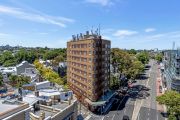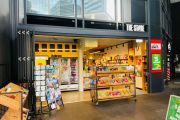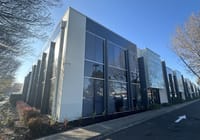
This $2.5b shopping mall deal could help solve the housing crisis
The pull of history is always going to be strong for Elliott Rusanow, chief executive of Scentre Group, which owns and operates the Westfield shopping mall network.
Not only is he a 25-year veteran of the company, who worked his way up to chief financial officer before taking the top job in 2022, but he is nephew (by marriage) of Westfield co-founder Frank Lowy.

So Rusanow is quick to put Wednesday’s deal to sell a 25 per cent stake in Scentre’s Westfield Chermside mall in Brisbane into context. Throughout its history, Westfield has sold down stakes in its centres to generate the equity required to fund the next leg of its growth.
That became harder during the pandemic, when Scentre leaned more heavily on debt to get itself through that period, but with the mall empire firing, Rusanow has been hunting for ways to enhance his long-term funding options.
The market, Rusanow says, doubted his ability to sell down stakes in centres at the same value Scentre has placed on them. But the $638 million sale of the stake in Chermside to Dexus Wholesale Shopping Centre Fund has been achieved at book value, and a capitalisation rate (the property equivalent of a yield) of 5 per cent.
It’s a deal that says the value of the best commercial property in Australia – be it office, industrial or retail – is holding up pretty well. Construction costs remain high, new supply is limited and demand for the best properties in the best locations is resilient.
To be clear, Rusanow doesn’t have an immediate plan for the $638 million proceeds. But what he does have is lessons from history.
Westfield may be known as a shopping centre giant, but it wasn’t born that way; Rusanow says retail was simply the “highest and best rent payers” for the land it owned. Over time, that’s subtly changed.
The make-up of Westfield’s centres now includes retailers, banks, car brands, fancy and casual restaurants, health and wellness services and plenty of things in between.
Scentre, Rusanow argues, is not in the shopping centre business, but in the destination business; he says its malls are increasingly new town centres, located in major population zones and typically co-located with heavy transport.
You might dismiss that as marketing spin, but Rusanow has one big ace up his sleeve: land, and lots of it. So as Rusanow does what his predecessors have always done – decide what’s the highest-returning and best use for that land – it’s inevitable he’s going to land on Australia’s biggest economic pinch point: housing.
“Eventually, the people who own that land are going to be the key player in the solution. And the reality is that we are the key player because we’ve got 650 hectares of this stuff right where people live right now,” he says. “We see that as being a tremendous growth opportunity for the group.”
Planning in Australia is already shifting towards the densification of residential property around key town centres, Rusanow says, so Scentre will have no shortage of options. And given it already owns the land, it can pursue them without putting undue pressure on its balance sheet – particularly if it’s got its long-term funding in order, as Wednesday’s deal is designed to assist with.
“We really own the town centres. And the town centres are where the densification is going to occur.”
How Scentre pursues that – and how investors price that opportunity in – remains to be seen. The stock edged higher on Wednesday, and is up 37 per cent in the past two years.
One thing Rusanow rules out is following Australia’s other big listed property players into the lucrative but volatile area of funds management. Deals like that with Dexus are a funding solution, not a way of breaking into that sector, he says.











